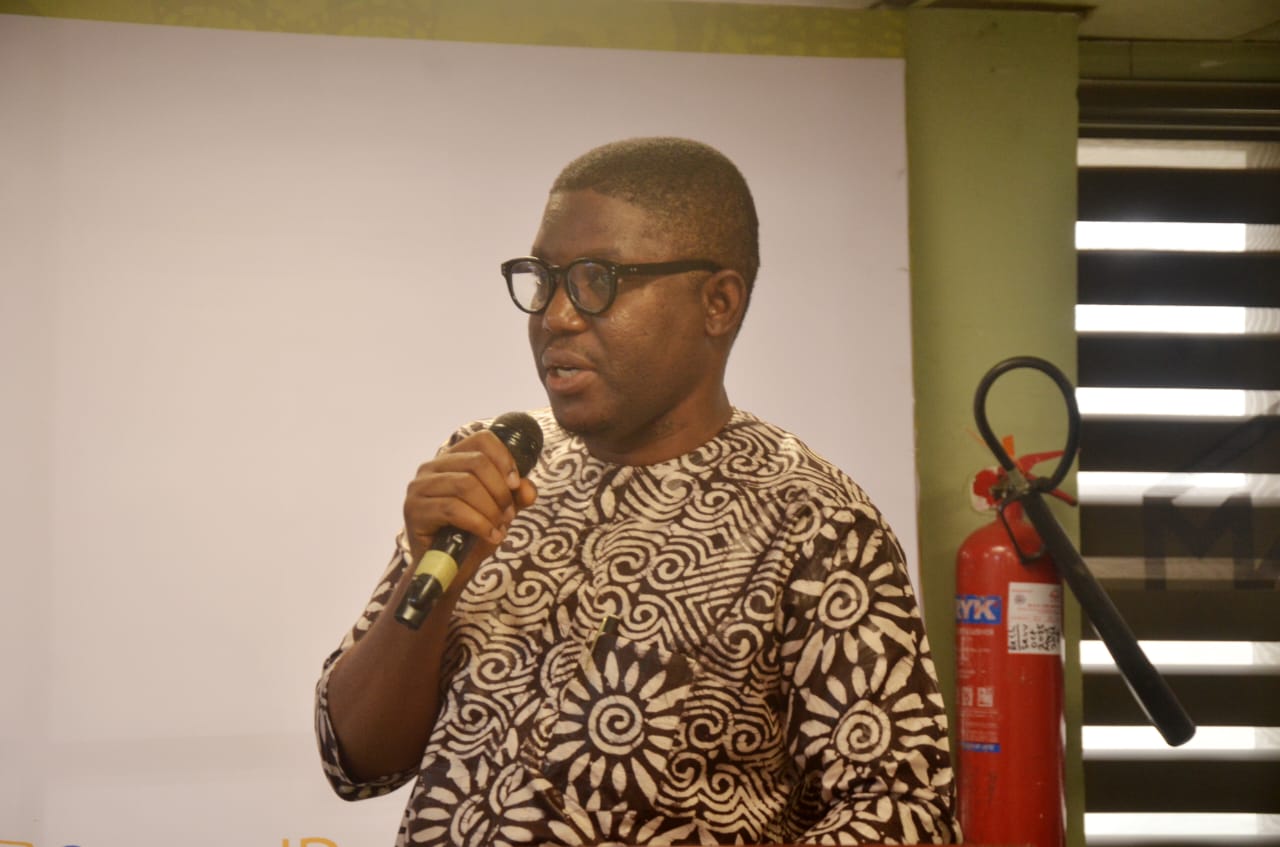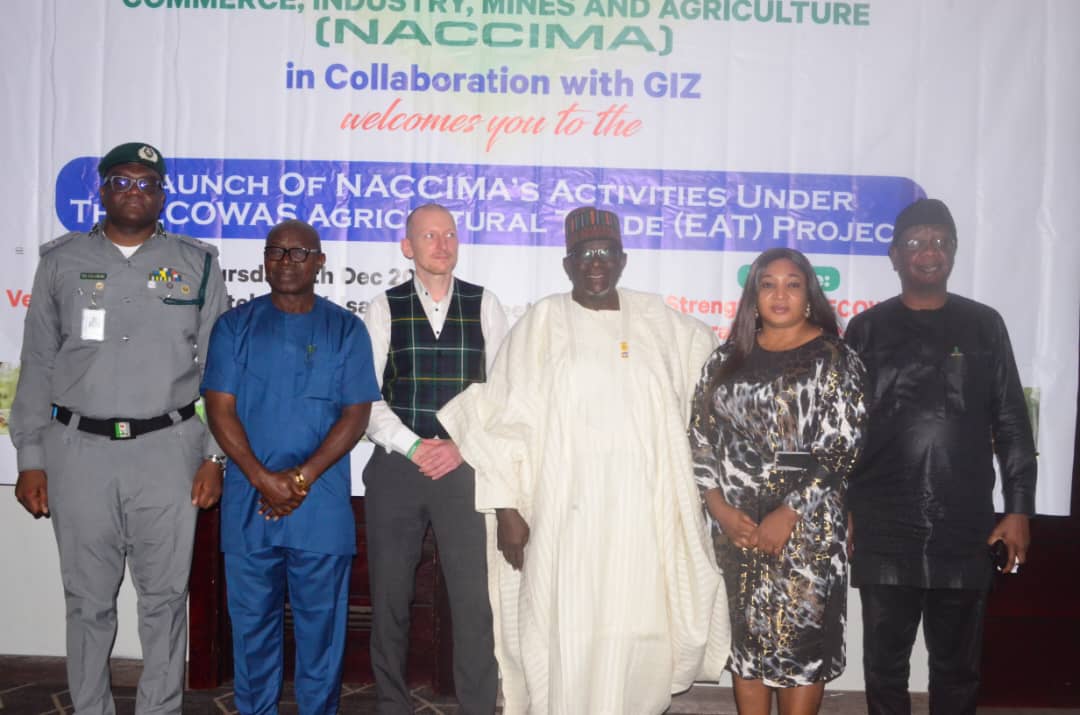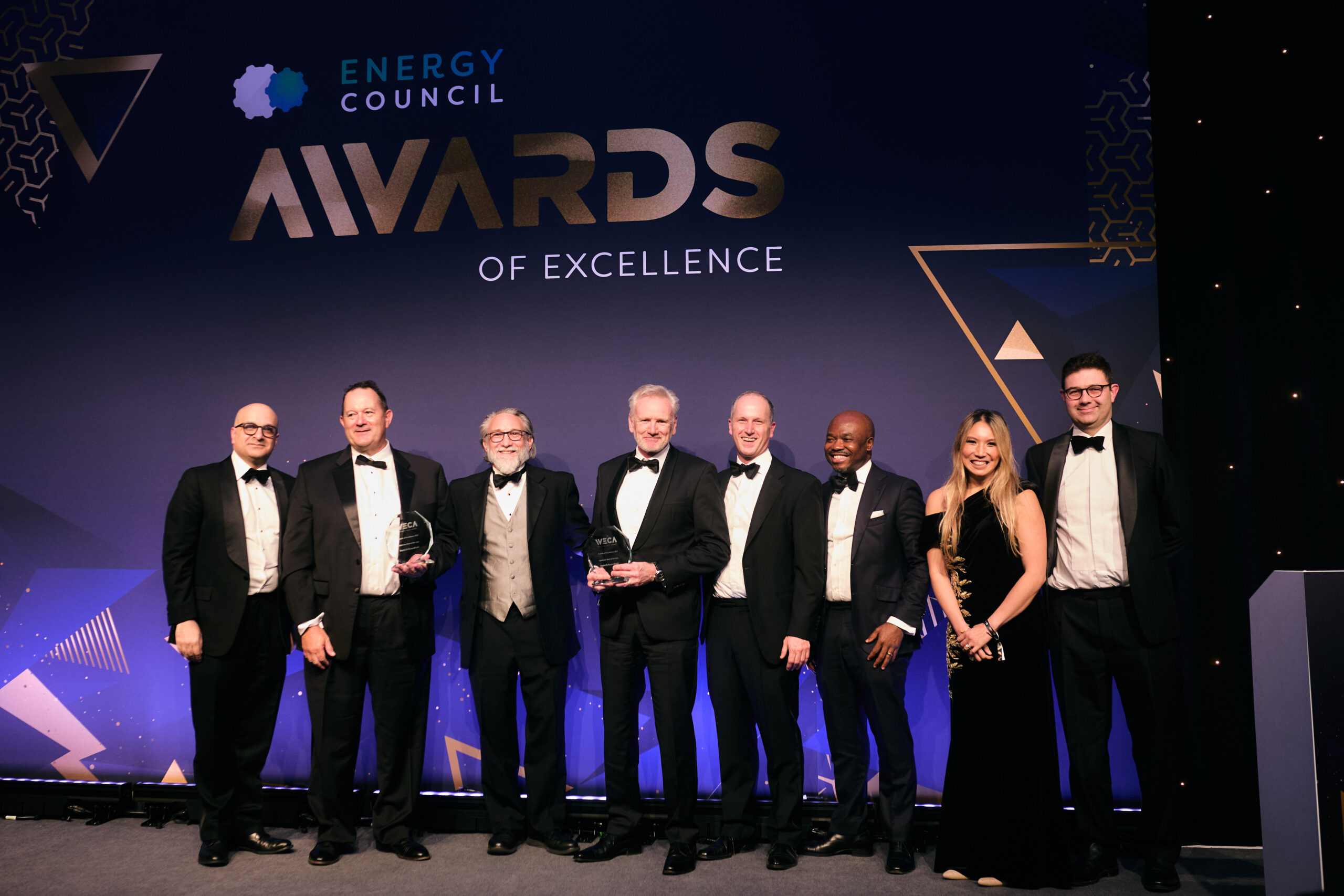MAN Applauds Press Role in Advocacy, Growth





…Trains Recovery Agents On Recovering Pension Liabilities From Employers
The Director General of the National Pension Commission (PenCom), Ms. Omolola Oloworaran, has announced that PenCom has ushered in a new era of zero tolerance for pension defaults with accredited Recovery Agents serving as the cornerstone of Nigeria’s social contract with its workers.
Ms. Oloworaran represented by the Commissioner Inspectorate of the Commission, Hon. Samuel Chigozie Uwandu stated this during an intensive Training Workshop for accredited Recovery Agents held in Lagos on 2 December 2025. The training marked a renewed nationwide compliance push to recover outstanding pension contributions and penalties from employers who persistently violate the Pension Reform Act (PRA) 2014, which mandates remittance of pension contributions within seven working days of salary payment.
The workshop, attended by enforcement officers, resource persons and pension industry stakeholders, outlined new strategic initiatives that will strengthen enforcement efforts, deepen inter-agency collaboration, and empower recovery agents to tackle non-remittance of pension contributions with greater precision and authority.
Speaking further at the workshop, the Director General reaffirmed PenCom’s commitment to enforcing strict compliance across the pension industry.
PenCom currently engages Recovery Agents to audit defaulting employers, calculate outstanding pension liabilities, issue demand notices, and facilitate recovery of unremitted pension contributions. Recovery Agents’ work has been instrumental in enforcing compliance since the start of the recovery exercise in 2012.
PenCom data shows that the Commission has cumulatively recovered ₦32.27 billion, comprising ₦15.87 billion in principal contributions and ₦16.40 billion in penalties from defaulting employers between June 2012 and September 2025.
In addition, PenCom recorded significant compliance gains in the third quarter of 2025 alone, recovering ₦2.06 billion (₦775 million principal and ₦1.27 billion penalties) from 49 defaulting employers, reflecting a sustained surge in enforcement activities.
Ms. Oloworaran told the workshop participants that despite the successes of the Contributory Pension Scheme (CPS), persistent defaults by employers threaten the fundamental purpose of the system.
“Every unremitted Naira represents a broken promise to a Nigerian worker,” she said. “This Commission has moved from promoting voluntary compliance to mandating enforced compliance. The era of impunity is over.”
She recalled that the appointment of Recovery Agents followed a competitive, transparent selection process, reflecting PenCom’s confidence in their capacity, professionalism, and integrity. She reminded participants that they are the “operational arm of PenCom’s enforcement will” and are critical to PenCom’s strategy to safeguard workers’ retirement savings.
The Director General outlined several bold initiatives forming PenCom’s expanded enforcement architecture, including forming stronger partnerships with key regulatory bodies such as the Corporate Affairs Commission (CAC), Federal Inland Revenue Service (FIRS) and other relevant agencies. Under these partnerships, employers’ compliance with the PRA 2014 will influence their standing with these bodies. The DG noted that defaulting employers will face consequences beyond PenCom, as non-compliance may affect business operations, access to government services, and regulatory privileges.
PenCom DG also brought to the attention of the participants the newly executed Memorandum of Understanding (MoU) with the Independent Corrupt Practices and Other Related Offences Commission (ICPC), which empowers ICPC to hold the management of recalcitrant employers personally accountable, making pension defaults a matter with potential criminal implications.
“This MoU is a decisive step to give teeth to our recovery efforts,” the DG stated. “No employer should imagine that withholding workers’ pensions is without consequences.”
The training modules delivered at the workshop were designed to deepen RAs’ skills in employer audit and compliance assessment; liability computation and negotiation; documentation and evidence management; engagement protocols under PenCom’s new enforcement architecture and use of enhanced digital compliance tools and reporting systems.
Participants were also briefed on PenCom’s internal reforms aimed at ensuring faster processing of reports, better coordination between departments, and stronger monitoring of ongoing recovery activities.
The DG concluded her remarks with a powerful charge to the Recovery Agents:
“You are the ambassadors of this new resolve, an Act with unwavering ethical standards, exercise professional care, and be relentless in securing what is rightfully due to the Nigerian worker.”
She said that PenCom stands fully behind the agents and will provide all necessary institutional support to ensure that every kobo owed to Nigerian workers is recovered.
The workshop ended with a renewed sense of mission as PenCom and its accredited Recovery Agents prepare to intensify nationwide compliance activities throughout 2026 and beyond.
 LarryBravo Nwaiwu
LarryBravo Nwaiwu
 Seplat Energy Plc, foremost Nigerian independent energy company, has received three (3) awards for market excellence (2025 Highest Net Asset Ratio) at the PEARL Awards 30th Anniversary and Awards Nite in Lagos; Upstream Deal of the Year at the World Energy Capital Assembly (WECA) Awards in London; and Education Intervention of the Year recognition at the SERAS Africa Sustainability Awards in Lagos.
Seplat Energy Plc, foremost Nigerian independent energy company, has received three (3) awards for market excellence (2025 Highest Net Asset Ratio) at the PEARL Awards 30th Anniversary and Awards Nite in Lagos; Upstream Deal of the Year at the World Energy Capital Assembly (WECA) Awards in London; and Education Intervention of the Year recognition at the SERAS Africa Sustainability Awards in Lagos.
The PEARL Awards (Performance, Earnings, and Returns Leadership Awards), established in 1995, are designed to honour companies listed on the Nigerian Exchange (NGX) for exceptional operational and stock market performance. The Awards aim to promote the vibrancy, growth, and development of Nigeria’s capital market. The highest return on net assets (RONA) ratio for which Seplat Energy was recognised, compares a firm’s net income with its assets and helps investors to determine how well the company is generating profit from its assets. The higher a firm’s earnings relative to its assets, the more effectively the company is deploying those assets.
Speaking on the awards, the President/CEO of Pearl Awards, Mr. Tayo Orekoya, said each of the competitive award categories, ranging from the sectoral leadership awards to market excellence awards and the most prestigious overall highest award, is the result of an objective and data-driven ranking process.
The NGX Chief Executive Officer, Jude Chiemeka, commended the foresight of the founders of the Pearl Awards, acknowledging their role in motivating performance excellence over the years. According to him, by recognising companies via quantifiable and verifiable metrics, the awards have strengthened discipline and transparency across the market.
The WECA Awards of Excellence represents a global benchmark of excellence for those working across the upstream industry. The awards recognise and honour the individuals and companies who have been at the forefront of first-class deals, value creation, innovation, or exceptional financial and operating performance. It also celebrates the executives who continue to change the face of the oil and gas industry, demonstrating outstanding leadership and performance.
The SERAS Awards promote excellence and best practice in CSR and Sustainability, provide a yardstick for measuring excellence and drive adoption of CSR and Sustainability in Africa. The awards also celebrate the continent’s most influential organisations and leaders driving transformative sustainable development.
In his address, Ken Egbas, Founder of The SERAS, explained that the 2025 theme -“Sustainability 2.0: Innovating for Impact and Inclusive Growth”—signals a decisive shift toward bold, future-focused action.
“Africa cannot afford business as usual. We must innovate—relentlessly, boldly, audaciously. We must connect growth to inclusion, profit to purpose, ambition to equity. This year’s organizations have shown that this future is attainable,” he said.


By Winifred Bosa

The Federal Airports Authority of Nigeria (FAAN) yesterday commenced its two-day Board Retreat themed “Future-Proofing FAAN: Leadership, Modernisation and Strategic Renewal.” This strategic gathering reflects FAAN’s commitment to strengthening governance, enhancing institutional capacity, and repositioning Nigeria’s airports for global competitiveness.
The retreat brought together a distinguished assembly of leaders, including the Chairman of the FAAN Board, Dr. Abdullahi Umar Ganduje, Board Members, Executive Directors, and management staff from across the Authority.
The Honourable Minister of Aviation and Aerospace Development, Mr. Festus Keyamo, SAN, CON, was ably represented by the Permanent Secretary, Dr. Yakubu Adam Kafarmata. Also present were: Distinguished Senator Abdulfatai Buhari, Chairman, Senate Committee on Aviation; and Hon. Festus Akingbaso, Deputy Chairman, House Committee on Aviation, representing the Chairman of the House Committee
In his remarks, the Chairman of the Board, Dr. Abdullahi Umar Ganduje, commended FAAN for organising the retreat and expressed confidence that the sessions would be highly rewarding and impactful for the future of the Authority.
Declaring the retreat open, the representative of the Honourable Minister extended the Minister’s optimism for the programme, stating: “May your deliberations be productive, and your outcomes transformative for FAAN, for the aviation sector, and for Nigeria.”
The retreat provides a critical platform to deepen synergy between the Board and Management, strengthen governance structures and clarify strategic direction; review FAAN’s operational, infrastructural, and financial landscape; chart a roadmap for modernisation, innovation, efficiency, and long-term sustainability; and align FAAN’s priorities with ministerial directives and national aviation development goals.
The Managing Director/Chief Executive of FAAN, Mrs. Olubunmi Oluwaseun Kuku, highlighted that the retreat offers an opportunity to reflect on FAAN’s progress, reassess its challenges, and envision a modern, responsive, and globally competitive airport system for Nigeria.
The combined presence of the Board, the Ministry, and National Assembly leadership underscores a unified commitment to driving reforms, strengthening institutional resilience, and delivering service excellence across all FAAN airports.
The outcomes of the retreat are expected to produce actionable resolutions and a focused strategic roadmap that will propel FAAN further on its journey of leadership, modernisation, and operational excellence.
